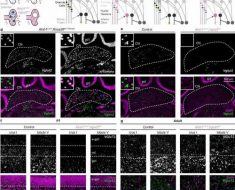A study published by the U.S. Centers for Disease Control and Prevention found that immunity against severe COVID-19 begins to wane four months after receiving a so-called “booster” third dose of the Pfizer or Moderna vaccines.
The first-of-its-kind study drew on data from the VISION Network, a partnership between the CDC and institutions spanning ten states.
By using health information exchange and electronic health record data, the agency and its partners are seeking to examine longitudinal effectiveness of the COVID-19 vaccines approved for use in the United States.
“The mRNA vaccines, including the booster shot, are very effective, but effectiveness declines over time,” said study co-author Brian Dixon, director of public health informatics for Regenstrief Institute and Indiana University Richard M. Fairbanks School of Public Health, in a statement.
“Our findings suggest that additional doses may be necessary to maintain protection against COVID-19, especially for high-risk populations,” Dixon added.
WHY IT MATTERS
For this study, researchers analyzed 241,204 emergency department/urgent care encounters and 93,408 hospitalizations across 10 states from August 26, 2021, through January 22, 2022.
An important limitation of the study is that it was designed to estimate vaccine effectiveness against COVID-19-associated emergency department visits, urgent care visits or hospitalizations.
Therefore, noted study authors, the effectiveness estimates from the study do not include infections for patients that didn’t receive medical attention.
Overall, researchers found that people with second and third doses of an mRNA vaccine had greater protection against hospitalizations than against emergency department or urgent care visits.
Vaccine effectiveness against emergency department or urgent care visits declined from 97% within the first two months of receipt of a booster to 89% effectiveness at four months or more during the Delta-predominant period, or summer and early fall of 2021.
During late fall and the winter, when the Omicron variant dominated, vaccine effectiveness against emergency department or urgent care visits was 87% in the first two months following a third dose and decreased to 66% at four months.
Still, protection against severe disease remained quite strong: Effectiveness against Omicron-variant-related hospitalization was 91% during the first two months and slipped to 78% at four months.
“Our findings confirm the importance of receiving a third dose of mRNA COVID-19 vaccine to prevent moderate-to-severe COVID-19 illness, especially among those with comorbidities,” said study co-author Dr. Shaun Grannis, vice president for data and analytics at Regenstrief Institute and professor of family medicine at Indiana University School of Medicine.
THE LARGER TREND
The VISION Network relies on data from partner institutions, including Baylor Scott and White Health, Columbia University Irving Medical Center, HealthPartners, Intermountain Healthcare, Kaiser Permanente Northern California, Kaiser Permanente Northwest, Regenstrief Institute, and University of Colorado.
As Regenstrief Institute representatives explained, most of the partners are health systems that employ an enterprise EHR system; Regenstrief uses EHR data from the Indiana Health Information Exchange, which connects multiple health systems in the state, each with its own EHR system. The institute recently trained an AI model on this data to forecast individual COVID-19 hospitalization.
Each institution can use the data it contributes to the VISION Network for addressing localized research questions, said the representatives. Members of the network propose ideas for studies as well.
Previous studies have included those showing vaccine effectiveness when compared with prior COVID-19 infections, for instance.
“While CDC provides significant and important leadership of the Network, member institutions are highly involved in proposing research questions, study design, and interpretation of analyzed data,” said Regenstrief representatives.
“We are also actively involved in data management and ensuring data quality as we extract information from EHR systems for submission to the network.”
ON THE RECORD
“That protection conferred by mRNA vaccines waned in the months following a third vaccine dose supports further consideration of booster doses to sustain protection against moderate-to-severe COVID-19 illness,” said Regenstrief’s Grannis in a statement.
Kat Jercich is senior editor of Healthcare IT News.
Twitter: @kjercich
Email: [email protected]
Healthcare IT News is a HIMSS Media publication.
Source: Read Full Article





